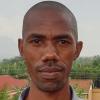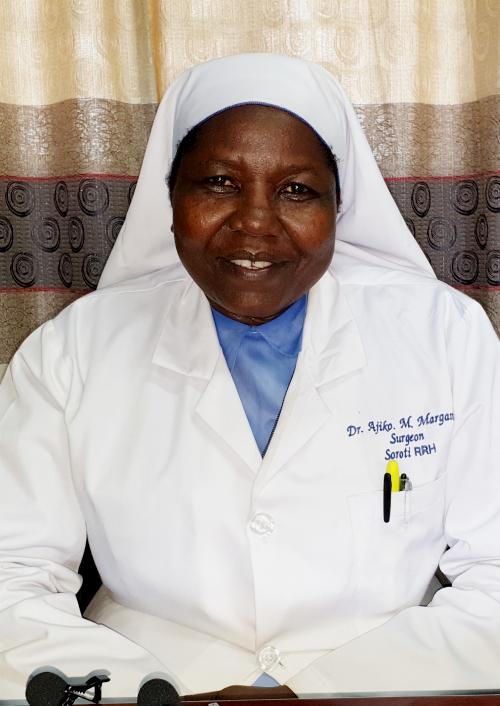
Sr. Mary Margaret Ajiko, surgeon and member of the Little Sisters of Mary Immaculate of Gulu in Uganda (Gerald Matembu)
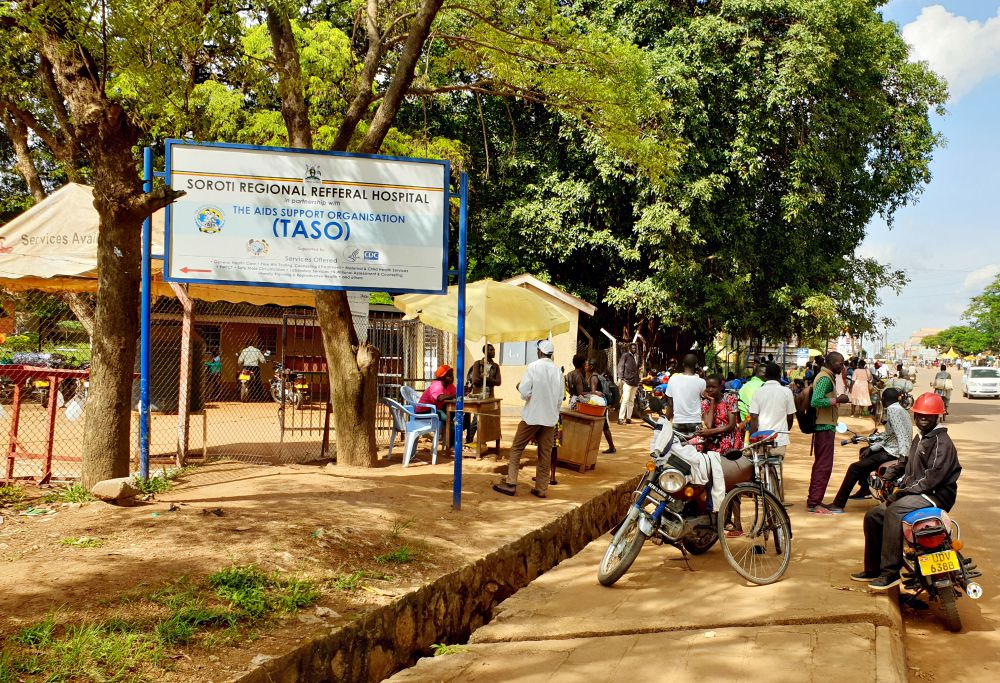
People wait outside at Soroti Regional Referral Hospital in Soroti, Uganda. (Gerald Matembu)
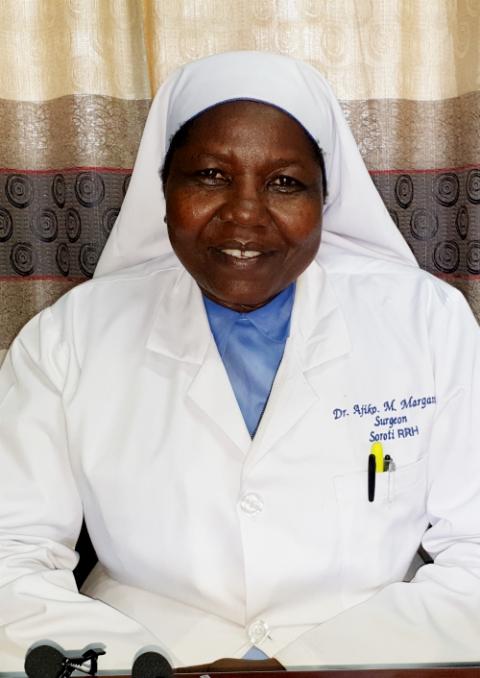
Sr. Mary Margaret Ajiko, surgeon and member of the Little Sisters of Mary Immaculate of Gulu in Uganda (Gerald Matembu)
Sr. Mary Margaret Ajiko serves humanity outside the jurisdiction of the church as a surgeon at the Soroti Regional Referral Hospital, a government hospital in Soroti, a small town in eastern Uganda.
Ajiko, who has worked for a decade at the hospital, is dedicated to serving humanity through her profession. This has made her a pillar of medical service in regard to surgery, especially to newborns and infants.
"I am now a consultant surgeon, still doing all the general surgery but with more bias to children," she told Global Sisters Report, adding that she gets referrals from across the country. "When I came here, I found many children were missing surgery, and there are many conditions in children. The congenital conditions are common, and not everybody else likes operating on children as young as 1 day."
Ajiko belongs to the Little Sisters of Mary Immaculate of Gulu in northern Uganda. She holds a master's degree in medicine from Makerere University in Kampala, Uganda. She is pursuing a doctorate with the dream of venturing into research for the betterment of the health sector in the country.
At the hospital, she has introduced a culture of prayer and the spirit of integrity among fellow staff, which has translated into improved service.
"I never operate on a patient without a prayer," she said. "Since I came here, it has almost become a culture that before we start an operation, we pray. In the ward, nurses pray before they start treating the patients. This hospital is like a church hospital. You don't find this spirit in all these hospitals. People just go and start work."
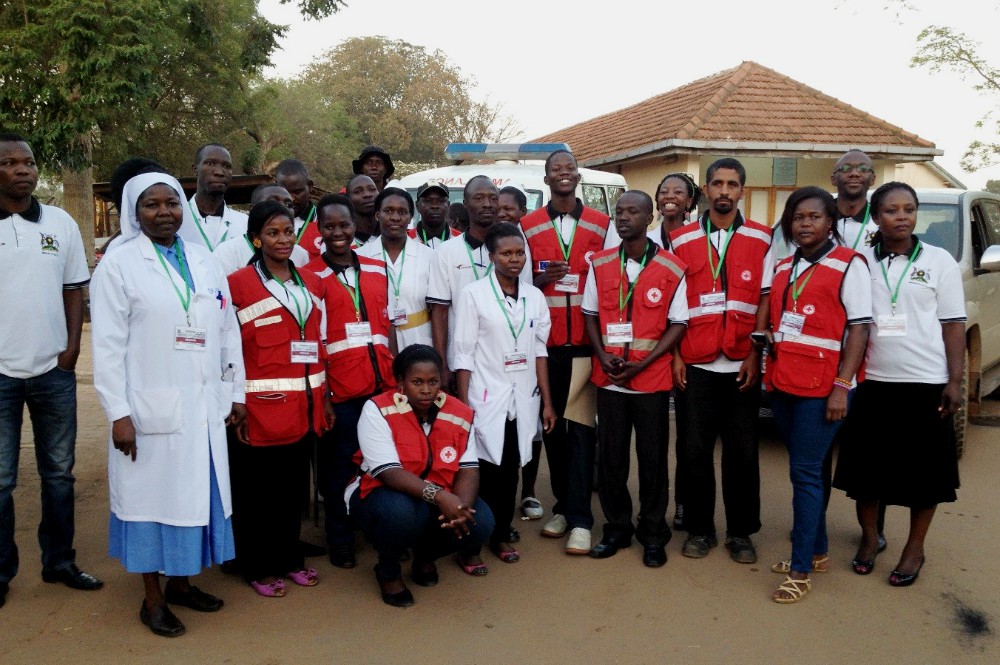
Sr. Mary Margaret Ajiko meets with the emergency team at Soroti Regional Referral Hospital. (Courtesy of Sr. Mary Margaret Ajiko)
Her presence at the facility is a glimmer of hope to the patients and a source of inspiration to fellow staff who look up to her.
She believes that the future of vocations in Africa is bright compared to the West, where numbers have greatly dwindled.
"I think Africa will go and evangelize in Europe in a few years to come," she said. "I was in Australia, and most of the convents have turned into supermarkets, and a few convents that you find, the youngest sister is 60 years old. Some convents have closed because there are no members. You go to Canada, and it is the same."
GSR: Please tell us about your journey to sisterhood.
Ajiko: I was in Sacred Heart Secondary School in Gulu, Uganda, which is just adjacent to the convent, and most of my teachers were nuns. I admired the way they dressed, and I liked their dedication. They were so passionate about their work. And I thought that I wanted to be a doctor.
Advertisement
How did your parents take your choice to become a nun?
I come from a family of seven, only girls, but I lost one sister. My father loved education, and you know, in our own African culture, usually, when you have only girls, it is a very big problem. [In most African countries, when a woman gives birth to a girl, the child is not as valued as when she gives birth to a boy.] But my father was a very supporting man. He vowed to educate us despite the stigma.
I used to be best girl in exams in Gulu region, and I went under bursary [scholarship], so my father had high hopes that I should study and be a more profitable person. When I told him about my decision to join the convent after high school, he was disappointed. To him, that was the end of my journey of education. But eventually, when he realized that I was passionate about it, he supported me, and he was excited on the day I became a nun.
Why did you choose the medical profession and not something else?
In high school, I liked sciences, and I loved doing dissections in the laboratory. I used to wear a white coat while in the laboratory, and people could call me "doctor."
We had good career guidance from our teachers, who helped us make choices according to our ability. Above all, I had pity for the sick, and I desired to become a doctor so as to treat them.
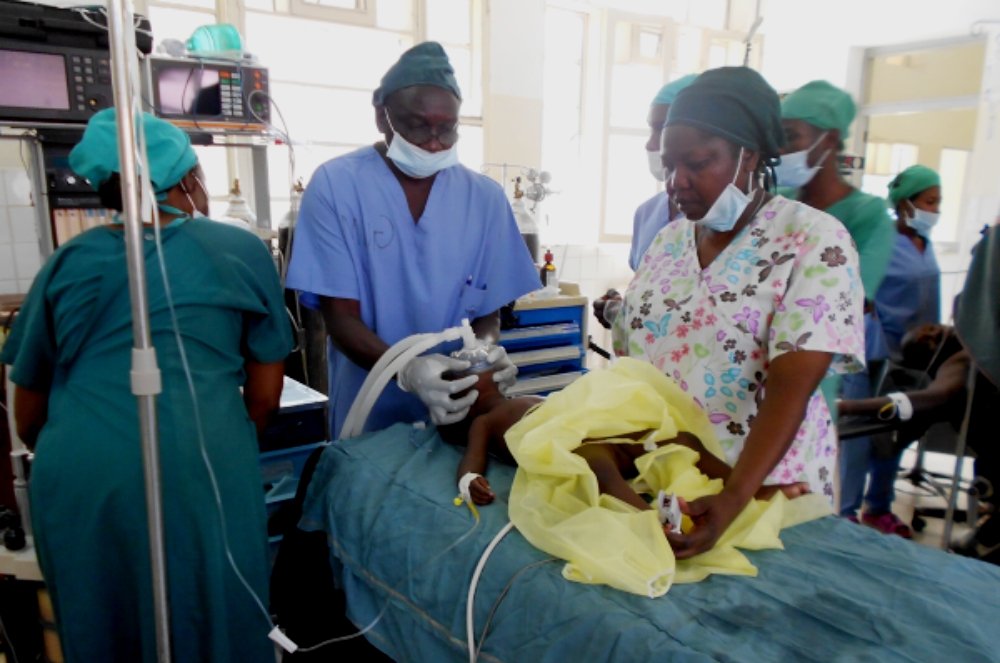
Sr. Mary Margaret Ajiko readies to conduct surgery on a baby at Soroti Regional Referral Hospital. (Gerald Matembu)
Please tell us about your experience in the medical practice.
I first worked at St. Joseph Kitovu Mission Hospital in Masaka town in southern Uganda as a medical officer and medical superintendent for two years before enrolling for a master's degree at Makerere University. I was redeployed back at the facility in 2003, where I worked for six years before coming to Soroti Referral Hospital. I have been a surgeon for 14 years.
At Kitovu Mission Hospital, I was doing a lot of work on emotional and psychological trauma caused by accidents, injuries, surgeries or violent attacks. But as a general surgeon, I used to do everything, including skin grafting, orthopedic, general surgery and pediatric surgery.
I was transferred to Soroti Referral Hospital, where I am a consultant surgeon but doing all general surgery, especially on children.
How does it feel doubling as a nun and a doctor?
Being a nun, I am continuing with the work Christ was doing on Earth, treating the sick. I treat and he heals them. When I give someone back his or her health, I feel happy. It is more fulfilling.
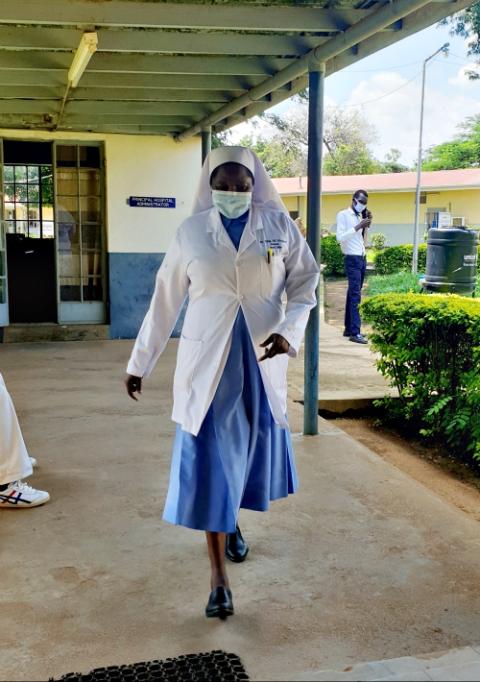
Sr. Mary Margaret Ajiko at Soroti Regional Referral Hospital (Gerald Matembu)
Serving as a nun is more enriching because I am free to serve the patients. Imagine if I was a married woman; I would have to run to see my children. I would have to be away for some period of time. But here I am, always, all the time, except the time when I am at school. I'm enjoying my work, and I am happy to serve the sick.
I am more committed to serving people compared to other colleagues, who have to attend to their families in addition to other interruptions. When I start doing my chores, I work without interruption, except going for prayers.
What is your lowest moment?
When I lose my patients, I really feel bad. Sometimes you can get a patient, especially the newborns, where you do a good surgery, but the patient ends up dying because there are no single critical care beds in most hospitals. You feel so low and ripped up because these are preventable cases.
In some instances, patients are brought late and in critical condition, and you can't help much. They end up dying while we treat them.
It is difficult during this lockdown period over the coronavirus. You have a patient who is so sick, and you need to do an operation, but there is no blood. You find yourself stranded with the patient, and she finally dies. You really feel so low. You feel really terrible because you want to help, but you can't. On the other hand, every successful operation is a moment of satisfaction.
What limitations do you face in your service?
The community is so poor that when people fall sick, they first try other remedies. By the time they come to the hospital, they are very sick, and managing a very sick patient is challenging. Instead of the basic drugs that are provided by the government, you end up recommending strong drugs, which the community can't afford.
According to our statistics, the commonest cause of death is head injury, but we don't have a CT scan, or computerized tomography scan. There are certain things that you want to do to confirm a diagnosis and manage the patient better, but you find your hands tied. So it is disheartening because you know what to do, but you are not able to do it.
Like removal of a clot: I can drill and remove a clot. I did it many times at Kitovu Mission Hospital, but we don't have the equipment here.
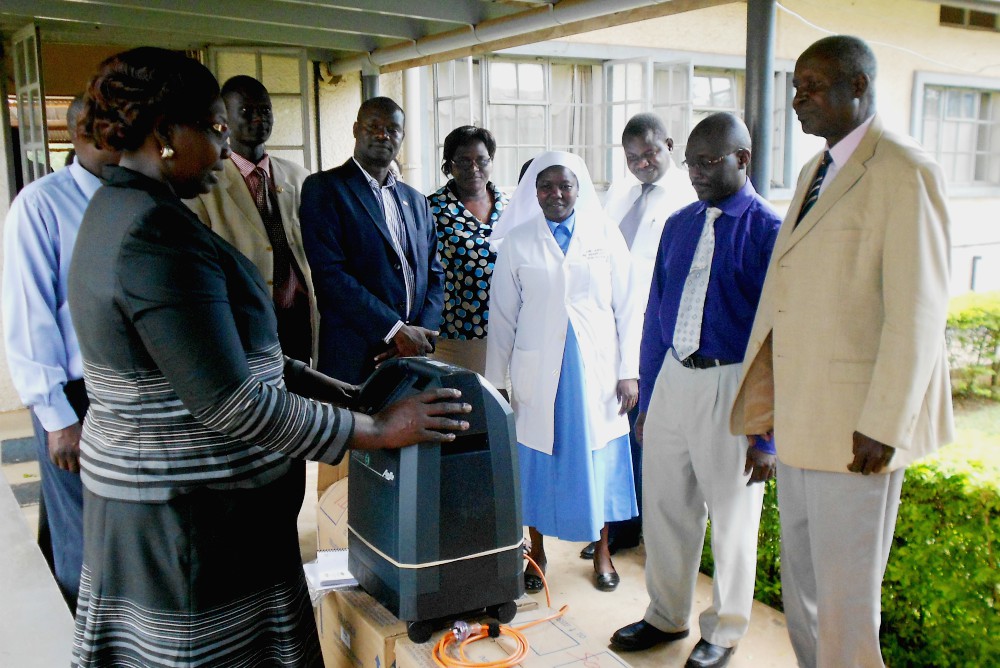
Sr. Mary Margaret Ajiko hands over oxygen concentrators to hospital management at Soroti Regional Referral Hospital. (Gerald Matembu)
You want to fix external fixators, but they are not available, so we tell them to go wherever they can find them. Then comes the challenge of transportation.
We have an old operating theater, and there are basically two operating tables that are active, yet we are a number of surgeons, so you have to wait sometimes three hours to conduct an operation.
The laboratory is also a challenge. Sometimes we cannot do most of the pre-surgery tests due to out-of-stock reagents, so you feel so bad because you have to send the patient to an outside laboratory. And you cannot trust the results of external labs.
What is your future plan?
I will continue with my surgery but also doing more research. We have been used to doing the same things all the time without analyzing the problem and finding out how to solve emerging problems.
For instance, my Ph.D. is on pediatric surgery, and I am discovering many things about children I didn't know. The end results can be presented to the Ministry of Health, and it can even be used to formulate policy, maybe for management of children.
[Gerald Matembu is a multimedia journalist based in Mbale Town, Eastern Uganda.]
